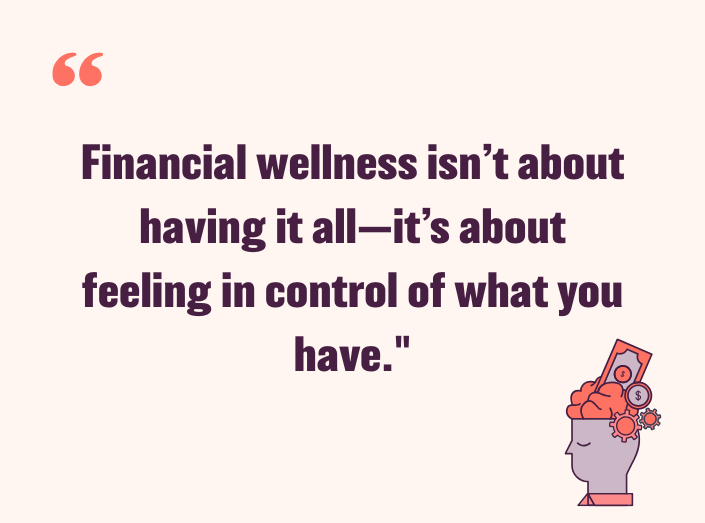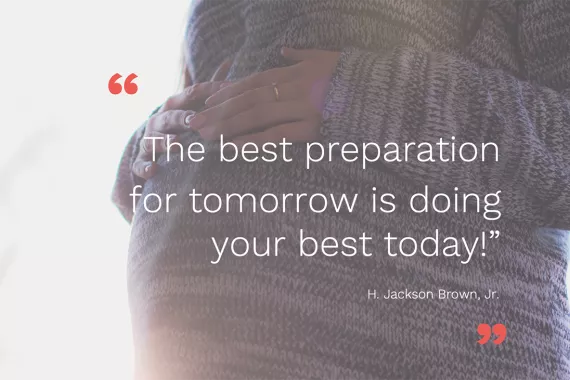Financial wellness isn’t about being rich—it’s about being prepared, feeling in control, and managing your finances in a way that supports your overall wellbeing and mental and even your physical health.
For many of us, worry about money can creep into every part of life—from relationships to sleep, to how we feel about the future and security .
Whether it's debt, unexpected bills, or feeling unprepared for retirement or rising products and services costs, it all adds up.
But here’s the good news: you don’t need to be perfect. You just need a few consistent actions. These 12 habits are simple but powerful, and they’ll help you create real, lasting financial wellness—one step at a time.

Track Every Pound You Spend
To improve anything, you have to understand it. And when it comes to money, the first step to better budgeting is tracking your spending.
Use a spreadsheet, notebook, or even a free finance app to measure your daily expenses. Over time, you’ll discover patterns, cut back on non-essentials, and feel more in control.
You’ll also find the right place to adjust and reallocate.
This habit enhances your financial wellness by improving clarity, reducing overwhelm, and aligning your money with your goals.
And once you feel more aware of your expenses, your path to financial wellness becomes more realistic and achievable.
Set a Weekly “Money Review”
Give your money 15 minutes of your time each week. Use this short session to follow your transactions, reflect on progress, check your account balance, and plan for next week’s bills or contributions to savings.
This habit improves your mental health by giving you peace of mind. It also builds confidence, measure your financial goals, and keeps you in charge of your budget. A regular routine is a quiet but powerful driver of financial wellness.
Use the 24-Hour Rule Before Spending
We’ve all made purchases we regret. The 24-hour rule helps prevent emotional or unnecessary spending. Wait a day before buying that item in your cart.
This pause encourages mindful spending and supports your financial wellbeing. Plus, you may realise that what you wanted wasn't actually that important. Fewer impulse buys mean fewer setbacks on your road to financial wellness.

Automate Your Savings
One of the easiest and most effective habits to improve your financial wellness is automation. Set a recurring transfer to your savings account right after payday.
Create separate pots for retirement, holidays, and your emergency fund. This keeps you prepared, ensures you're meeting your financial goals, and builds your long-term security.
When saving becomes automatic, your financial wellness strengthens in the background—no worries, no overthinking.
Build an Emergency Fund
Being prepared for the unexpected protects your mental health, and helps avoid dipping into debt.
Start with a small target—£250, then work toward a month of expenses. Label the account “emergency” so you don’t touch it for impulse purchases.
Think of it as an emotional and financial safety net—your version of peace.
A strong emergency fund is one of the clearest signs of someone building financial wellness from the ground up.
Cancel Subscriptions You Don’t Use
A quick scan of your finance dashboard or email inbox might reveal forgotten subscriptions. From streaming to digital products, these charges can quietly erode your budget.
Cancel the ones you no longer use. That’s money back in your wallet—and more carry for your savings, debt reduction, or short-term goals. Every pound saved gets reinvested into your financial wellness.

Try a No-Spend Day or Week
Designate a day each week where you don’t buy anything outside of essentials. This resets your mindset and helps you rethink the value of daily expenses.
It’s a great way to reconnect with your financial values, increase your sense of control, and focus on what truly matters—like your goals, your wellbeing, and the joy of doing more with less.
These mindful practices build discipline, which is a cornerstone of lasting financial wellness.
Learn to Say “No” Without Guilt
One of the biggest mindset changes is learning that “no” is a complete sentence. You don’t need to attend every social event or buy every trending gadget.
Saying no is an act of self-care—and a tool for building your financial wellness. Set boundaries and protect your resources.
It’s okay to put your goals first. Guilt-free decision-making is part of financial independence—and ultimately, financial wellness.
Set Short-Term Financial Goals
Goals don’t have to be huge. In fact, small goals are easier to reach—and they motivate you to keep going. Want to save £100 this month? Pay off a portion of debt? Start there.
Every achievement improves your confidence, reinforces your discipline, and hold up long-term financial wellness. Use simple guides like sticky notes or goal trackers to visualise your progress.
Over time, stacking these wins helps solidify your habits and deepen your commitment to financial wellness.

Automate Bill Payments
Missed bills can lead to fees and credit issues. Automate them.
This one habit will save you time and ensure that your finances run smoothly—even on busy days. It's a game-changer for both productivity and peace.
Simple systems like these reduce emotional burden and strengthen your financial processes—supporting ongoing financial wellness.
Learn One Financial Concept Each Month
Education is the key to stronger financial wellness. You don’t need to become a financial expert—but you should understand basic ideas like interest, debt, and how to invest.
Sign up for free email newsletters or short information sessions from trusted finance guides. Even a few minutes a week of learning makes a difference over time.
Knowledge is the foundation of financial wellness—because when you understand your money, you can master it.
Celebrate Progress, Not Perfection
You don’t need to do everything right to make progress. Did you avoid a splurge today? Paid off early? Said “no” when you used to say “yes”? That’s growth.
Take time to review wins, no matter how small. Reflect on your journey, stay grateful, and continue building your financial wellness one step at a time.
Celebrate consistency. Celebrate resilience. Both are proof that your version of financial wellness is working.

Build Financial Wellness with Simple Steps
Financial wellness isn’t an end goal—it’s a daily practice.
Whether you’re tracking savings, learning about finance, building an emergency fund, or setting new goals, every action counts. You’re not just saving your wallet—you’re investing in your life, your mental health, and your future.
So take one small step today. And then another. Your money journey is yours to own—and your peace of mind is absolutely worth it.
The more intentional you are with your habits, the more your financial wellness grows—quietly, consistently, and powerfully. And that’s the kind of success that truly lasts.
Discover more
-
5 secrets to live a secure financial life
Whatever life throws at you - get prepared to have your finances under control. A good financial plan can help you prepare for all... -
How financial wellness apps can help improve savings habits
Financial wellness apps can help improve savings habits by automating budgeting, tracking spending, and providing financial educat... -
Define the financial support you need
So we’ve looked at the different types of financial experts – independent financial advisor, retail banks, building societies and ...


